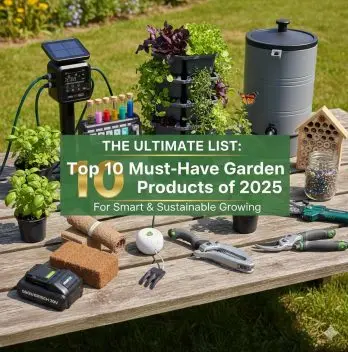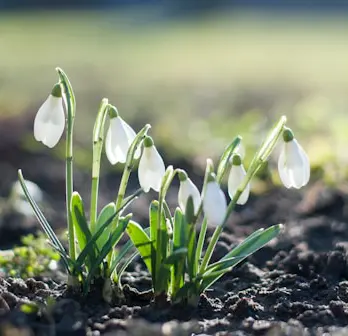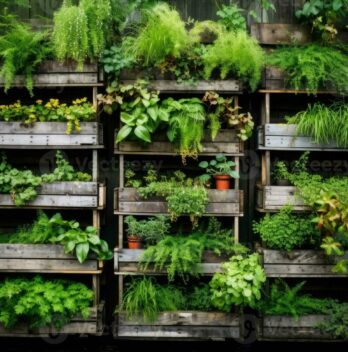How much water do peppers need and how often should you water your pepper plants? It is important to know the growing requirements for peppers if you plan on having them in your garden.
Peppers are a very popular garden plant. They grow fast, are easy to grow, and taste great! But when you start to look into the specifics of how to grow peppers, there is a lot of conflicting information.
The most common advice for growing peppers is to give them regular watering. But how much water is that and what about the frequency? Should you water them once a day, or twice?
How Much Water Do Peppers Need?
When growing peppers, you want to give them regular water. There are a few factors that will influence how often you should water your peppers. They include weather, location, variety, and whether you are growing your pepper plant indoors or outdoors.
You should water your peppers when the
When the weather is hot, you will need to water your pepper plants more often, such as two to three days a week. If you have been experiencing lots of rainy weather, then you will have to water your peppers less.
Be careful not to over-water your pepper plants. Too much water can cause wilted leaves and rain rot. In addition, it may also cause sunburned fruit or may cause the leaves to drop.
When you are ready to harvest, you should cut the peppers off at the stem. The size and color of the pepper will vary on the variety.

Growing Peppers: How Much Water Do Peppers Need?
Growing peppers is easy and most gardeners have been able to grow their peppers. Here is a step-by-step guide to growing peppers.
Step 1: Choose an ideal location
A sunny location with at least six hours of sunlight is best for growing peppers, but they can also be grown in partial shade.
Step 2: Choose the right soil
Peppers need rich, well-drained
Step 3: Prepare the area
Dig over the area to remove all weeds. Ensure the
Step 4: Add compost
Tsing compost to grow your peppers is important as it provides nutrients required for your plants. Compost provides nitrogen, phosphorous, and potassium.
Step 5: Plant the seedlings
Make sure that the seedlings are 12 to 18 inches apart, depending on the variety. If you don’t have enough space to plant them, you can try to transplant them from another location.
It is recommended that the plants be transplanted when they are about three to four weeks old, when they begin to produce their third set of true leaves, When planting, make sure that the seedlings are not touching each other and don’t crowd the roots.
Step 6: Water the seedlings
They should be watered regularly until they get about 3-4 inches tall, every few days to daily. After this stage, you can stop watering them and let them dry out for about a week.
Step 7: Fertilize your peppers
Fertilize your peppers when first transplanting them and then again when they start to bloom. It is a good idea to use a 5-10-10 fertilizer.
Step 8: Harvest your peppers
When the peppers get to maturity, harvest them by cutting them off the stem. Store them at room temperature for a few days or in the fridge for around a week.
The growth process of peppers is an easy one. They can be susceptible to pests and diseases but are generally hardy plants to grow. Common pests include aphids, caterpillars, and hornworms.
They eat the leaves, flowers, and fruits of the plants. Aphids are small insects, which have green or brown bodies.
Final Thoughts – How Much Water Do Peppers Need?
The amount of water that peppers require is about one to two inches of water a week. The best way to learn how much water do peppers need is to provide your peppers with water around once to twice a week. Peppers are easy to grow and give you a thriving crop if you provide the right growing conditions.
If you harvest your peppers when they are fully mature, they can last longer and you can harvest more from the same plant. Be careful not to damage the plant as you harvest the peppers or you will lose the rest of the harvests. Use a sharp knife or a pair of scissors to cut the pepper from its plant instead of pulling it out. Happy gardening!
Read more about Do Zucchini Plants Climb And Require Support?
FAQs
How often should a pepper plant be watered?
If you have well-drained, loose soil, you should water your plants once to twice a week .
If you live in a very hot climate, you might need to water more frequently than this. Watering can be done manually by hand or with a soaker hose.
How do you know if you are overwatering pepper plants?
The most obvious sign that your peppers are too wet is when they start to rot. If you don’t have a greenhouse or a patio covered area, you can also check your plants by looking at the bottom of the leaves.
The leaves should be dark green and not droopy. You can also use your finger to gently feel the leaves. If the leaves feel soft and spongy, you need to water your plants more frequently.
How much water do bell peppers need?
Peppers need about one to two inches of water a week. They are one of the easiest plants to overwater. It is important to keep your pepper plant roots moist, but not soggy.
The easiest way to tell if your peppers are getting enough water is to look at their leaves. If they are drooping, then you need to water your plants more frequently. It may take a few days for your peppers to show that they are getting enough water.
How do I know if my peppers need fertilizer?
Fertilizer is usually recommended for all types of peppers. When growing peppers, you should fertilize your plants when transplanting and again when they bloom. Peppers have a strong root system and will absorb nutrients from the soil if it is not fertilized.
Fertilizers can help your peppers grow faster and produce larger fruits. You can use any type of fertilizer that you want as long as it contains nitrogen, phosphorus, and potassium.
Do peppers need lots of water?
Peppers generally only need one to two inches of water a week. If you water them too much, they may start to rot. Peppers also need a lot of sunlight to grow properly.
During the day, your pepper plants will need at least six hours of sunlight to grow. If you have the right kind of soil and plenty of sunshine, growing peppers should be relatively easy. If you plant them in the fall, they will germinate quickly and will have time to grow before the weather gets cold.





